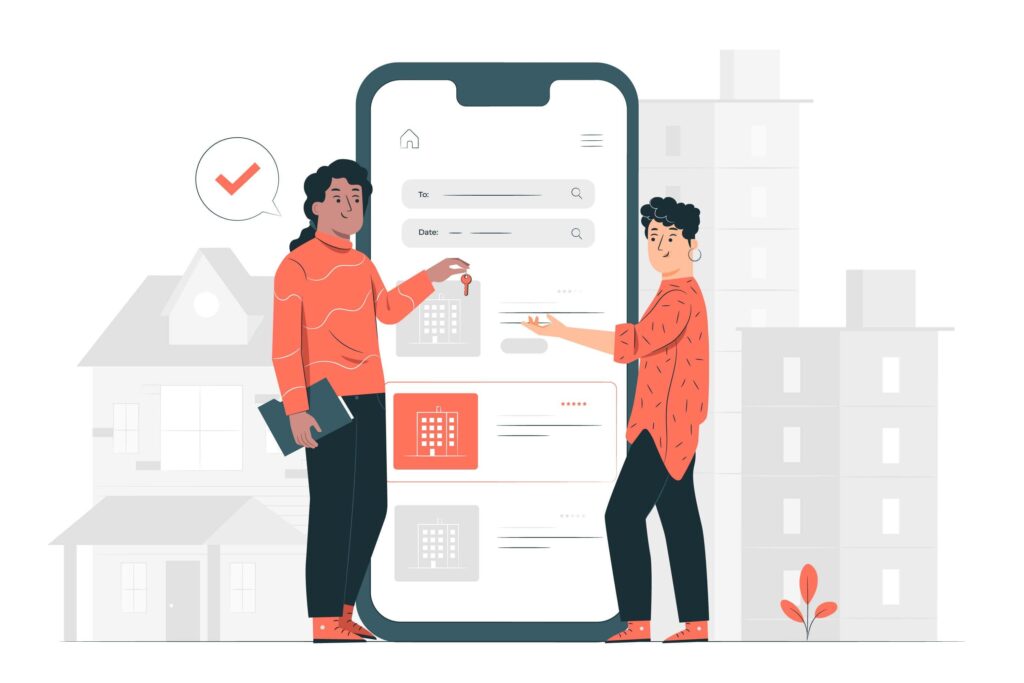January 15, 2022
either/view ⚖️
Renter Rules
To: either/view subscribers
Good morning. Every Saturday, we write about one specific right that you possess as a citizen in our country. In today’s edition of “Know Your Rights”, we look at your rights as a tenant.
KNOW YOUR RIGHTS – EDITION 22
Rights of Tenants in India

“The bargain struck between landlord and tenant is always advantageous to the former in the greatest possible degree.” If you read that and went, ‘nothing but facts’, well, you’re not alone. A little someone known as Karl Heinrich Marx very much understands where you’re coming from and might have some interesting thoughts about the same.
In a less radical sense, the Indian government saw tenant-landlord relationships and came to a similar conclusion. So much so that for a long time, our laws were super tenant-friendly. Back in 1948, when the central Rent Control Act was passed, it was so stringently pro-tenant that our housing market couldn’t grow in some areas.
Here’s the thing, this hasn’t really changed much due to “an artificial shortage of housing” and housing fraud carried out by developers. But boy, do landlords know how to make their money. High rents, demanding 3-6 months worth of advance rent for “financial guarantees” and security deposits are just some of the many ways they’ve managed to work around a tenant’s rights.
So, what exactly are your rights as a tenant? First, we’ll have to get into the paperwork a little bit – the most important step in your journey as a tenant. In India, a written agreement between the potential tenant and the landlord must be agreed upon, signed, dated and stamped to make it legally binding. Any changes made to this rental agreement, if not mentioned in writing, does not stand in the eyes of the law.
Now, for the most part, India sees only two types of rental agreements. One is the Lease Agreements that are covered by rent control laws and two, Lease and Licence Agreements that aren’t. An important point to remember while reading the rest of the article is that each state has its own laws when it comes to tenancies. While they may be similar, as they all need to be based on drafts provided by the Centre, certain details might change from state to state. We will be going over rights that every tenant in India has in common.
So, rental agreements. The Lease Agreements that are covered by rent control laws are really where it’s at for tenants. The maximum amount of rent that can be charged in such agreements depends on a formula devised by the local government. In Delhi, for example, the maximum annual rent in such agreements can only be 10% of the total cost of construction and market value of the land.
Here’s the incredible part, those valuations are based on historical values, not current property ones. And the rent can only be increased by a fraction of the cost spent to improve the property, something a landlord is supposed to inform a tenant about beforehand. In Lease and Licence Agreements though, the more common ones today, “all terms are governed by the agreement between landlord and tenant.” Whatever that contract says, goes.
Okay, since we’re now done with that, here we go. What are the basic rights of a tenant in India? There are three basic rights all tenants have:
- The Right Against Unfair Eviction: The landlord cannot evict a tenant without “sufficient reason or cause”. Only in cases where there is “substantial breach of lease agreement by the tenant” or “wilful default of payment of rent arrears” can a landlord evict a tenant.
- The Right to Fair Rent: A landlord cannot increase one’s rent exponentially without any explanation. In most states, “fair rent” is considered to be 8-10% of that property’s market value.
- The Right to Essential Services: A landlord does not have the right to withdraw services like water supply, electricity or even restrict the tenant from using such common amenities. It doesn’t matter if a tenant has paid their rent or not.
Apart from the three main ones mentioned above, a tenant has the following rights as well:
- The right to a house that is fit to be lived in, i.e. they must meet the minimum standards of accommodation. Bad wiring, holes in the walls or even plaster falling from the ceiling makes a house unfit to live in.
- The right to be reimbursed for any repair work the tenants’ paid for while living there.
- The right to be fully informed about the terms and conditions of living in the property. Only when these terms are consented to in writing, the rental agreement becomes valid.
- The right to have access to appropriate contact information, i.e. phone numbers, email addresses, postal addresses, etc, of the landlord. The landlord must also be easily contactable to a reasonable degree during the day.
- The right to prior notice of the tenants’ termination.
- The right to privacy, i.e. the landlord isn’t allowed to enter the rented house without prior permission of the tenant unless there is a real emergency like a flood or fire.
- The right to have visitors stay overnight for short periods of time unless specifically mentioned otherwise in the rental agreement.
- The right to claim rent reduction if there is a deterioration in services, either due to a reduction in accommodation space or because of poor maintenance. You’re allowed to keep your hard-earned money to yourself.
When it comes to standing up to a landlord, there really are just two options for tenants. One, try to reason with your landlord about whatever you think is inappropriate and keep a copy of that interaction with you as proof. Letters and emails are highly recommended. And if the situation still doesn’t fix itself, you always have the other option – calling the police.

